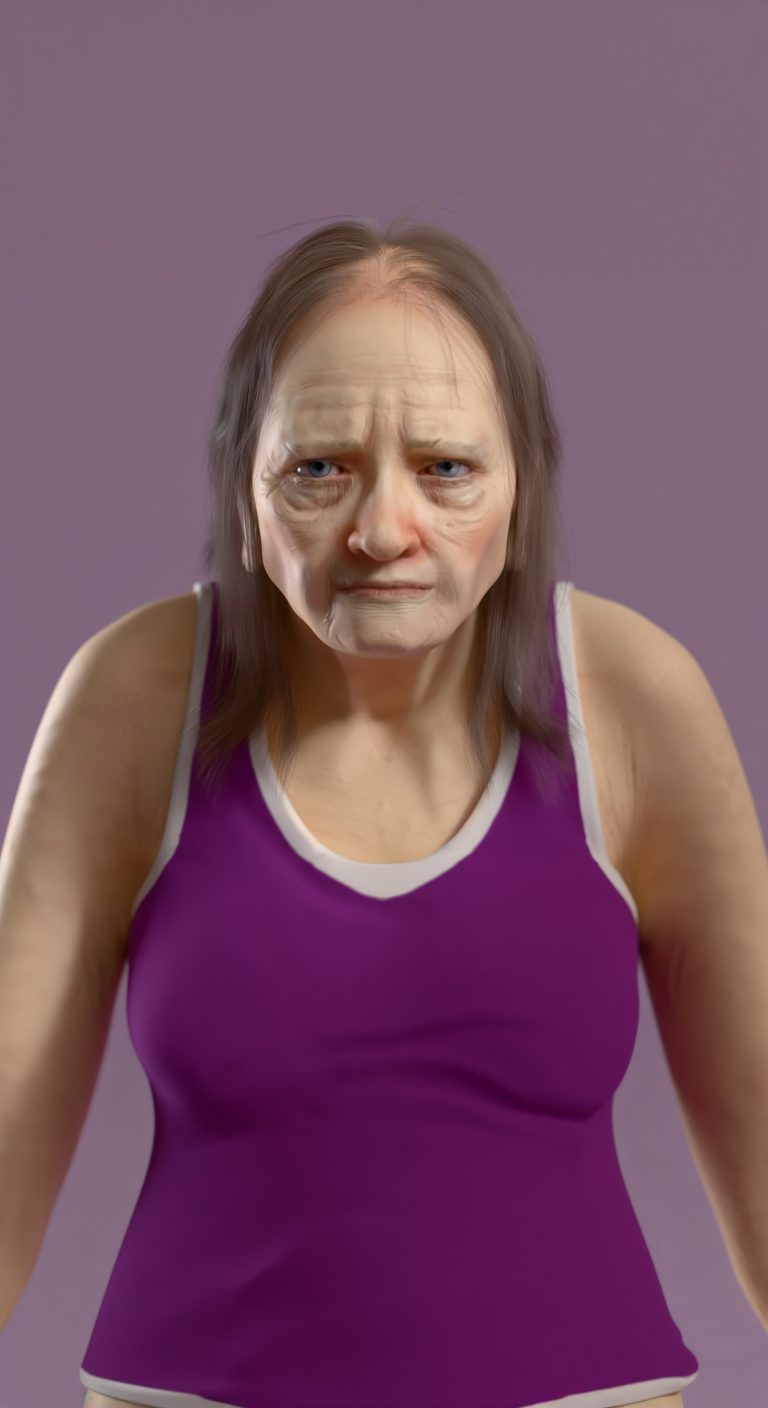The Impact of Sleep Deficiency
As the UK faces a growing sleep crisis, the average Brit is only getting 6 hours and 24 minutes of sleep per night. This chronic sleep deprivation raises questions about the long-term effects on our health, well-being, and appearance. To highlight the risks, bed specialist Bensons for Beds, in collaboration with sleep expert Dr Sophie Bostock, has unveiled “Hannah”—a life-like representation of a Brit in 2050, struggling with the consequences of too little sleep.
Hannah: A Visual Warning for the Future
“Hannah” is a 3D render, created to demonstrate what the human body could look like in 25 years if we continue to neglect our sleep. Designed based on scientific research, this visual encapsulates the short- and long-term physical effects of sleep deprivation. From memory loss to skin aging, Hannah’s body shows the damage caused by years of inadequate sleep.
The Science Behind Hannah’s Design
Drawing from studies published since 2010, Dr Sophie Bostock explains, “Sleep deprivation doesn’t just affect our energy levels. It impacts our circadian rhythms—the biological cycles that govern our health. Over time, poor sleep can lead to profound physical changes.” Hannah’s design takes these findings into account, showcasing the damage that poor sleep can inflict on the brain, skin, immune system, and more.
Key Impacts of Sleep Deficiency on the Body
Hannah’s body is a physical representation of the many consequences of sleep deprivation. The effects include:
- Head: Short-term memory loss due to disrupted brain functions during sleep.
- Hair: Alopecia, a result of chronic poor sleep.
- Eyes and Mouth: Red, swollen eyelids, under-eye bags, fine lines, and droopy mouth corners—signs of aging from lack of rest.
- Nose: Increased vulnerability to respiratory infections like colds and flu.
- Skin: Reduced skin elasticity, wrinkles, and premature aging.
- Body: Chronic pain in the back and shoulders, exacerbated by sleep deprivation, creating a cycle of discomfort.
- Stomach: Disrupted hunger hormones leading to overeating and weight gain.
- Muscles: Muscle atrophy from lack of physical activity, further compounded by tiredness.
- Swollen Legs: A sign of heart disease and poor circulation, linked to long-term sleep deficiency.
The Ripple Effect on Overall Health
Dr Bostock emphasises, “The body doesn’t function in isolation. Lack of sleep increases the risk of obesity, heart disease, Type 2 diabetes, and many other conditions. This is why it’s so important to address sleep issues before they worsen.” The effects seen in Hannah serve as a stark reminder of what could be the future for many if poor sleep habits persist.
Practical Tips for Improving Sleep Quality
Bensons for Beds, alongside Dr Bostock, has shared a number of strategies to help Brits improve their sleep and avoid becoming like Hannah:
- Maintain a consistent sleep schedule, even on weekends, to keep circadian rhythms in sync.
- Stay physically active to promote better sleep.
- Expose yourself to natural light during the day and reduce bright artificial lights before bedtime.
- Avoid eating late at night, as this can disrupt sleep quality.
- Reserve the last 30 minutes of the day for winding down and disconnecting from screens.
- Invest in a supportive mattress, which should be replaced every 8-10 years.
Seeking Professional Help
If sleep issues persist, Dr Bostock advises seeking professional help. Cognitive Behavioural Therapy for Insomnia (CBT-I) is a recommended treatment for chronic sleep problems, and a GP can provide advice or refer to specialists if necessary.
Conclusion
The release of Hannah serves as both a warning and a call to action for those who continue to neglect their sleep. With simple lifestyle changes, Brits can avoid the worst outcomes of chronic sleep deprivation and improve their overall health and quality of life.




